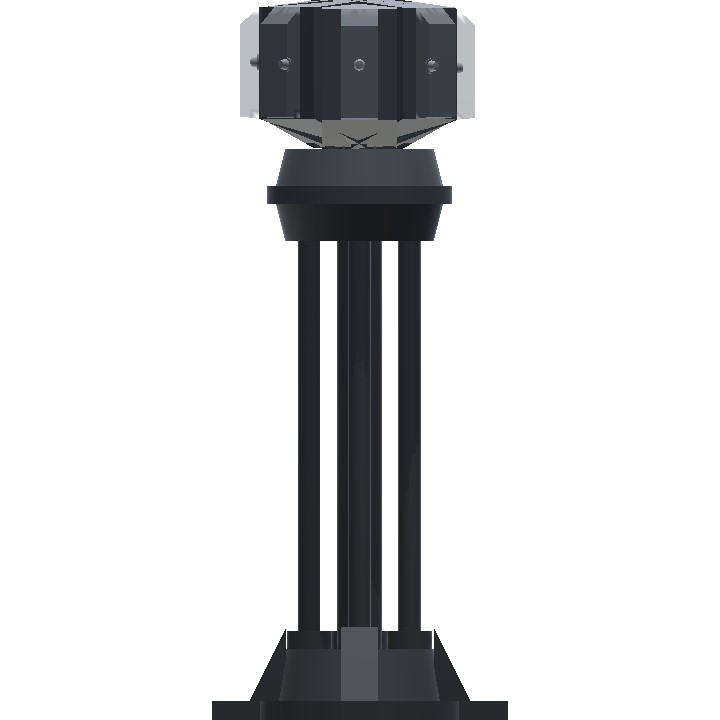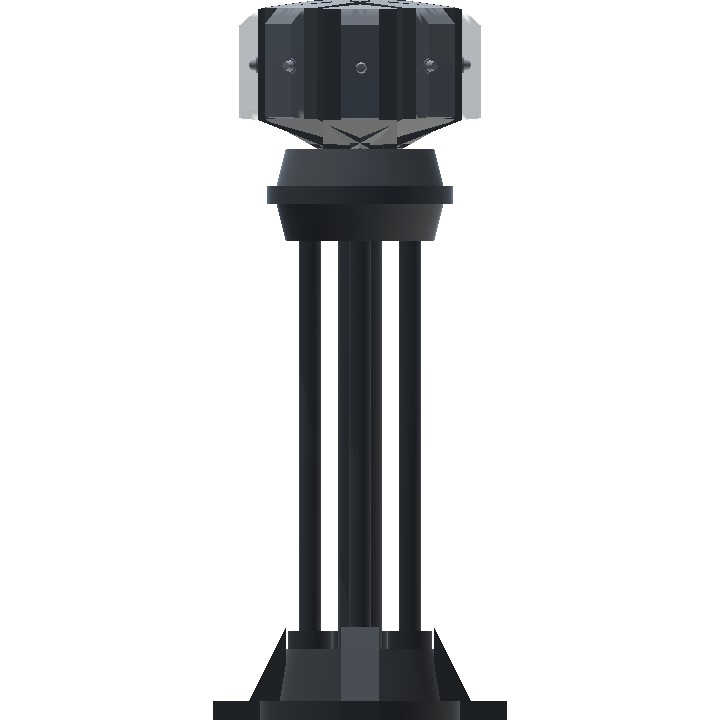The prism tower consists of 6 rotating mirrors on the top of a tower. These mirrors are positioned to form a charging chamber to produce a photon beam to be directed by the tower's top mirror. A single prism tower's laser beam is less powerful than a discharge from a Tesla coil, but the its rate of fire is faster and has a slightly further range. Two or more adjacent prism towers have the ability to combine their beams, increasing the power of the resulting beam, a property that the Tesla coils do not possess. In essence, this was done by firing off a beam at another tower's mirror, often in a chain, after which the final tower that the beam would reach would fire an enhanced beam that is proportionally powerful to the number of chained prism towers.
They were particularly effective against heavily armoured tanks, even Apocalypse tanks. Artillery units outranged them, however. Combining beams from nearby towers would create a blast that could destroy a tank in a single hit, but had a downside - prism towers that were close to each other could only focus on a single target.
Usage
The prism tower was developed by Albert Einstein to counter the Soviet Tesla coil. The technology was first used at the Pentagon, as seen during Operation: Liberty.
The Soviets attempted to replicate prism technology in a secret base near Tulum, Mexico. They placed turrets with larger mirrors upon Mayan temple ruins. This version was more powerful and had a faster rate of fire. The prototypes and the surrounding Soviet base were destroyed by a group of Navy SEALs during Operation: Sun Temple.
Aftermath
During the Post-war Crisis, prism towers were still used by Allied forces, and retained the ability to combine their beams.
Despite the disappearance of Albert Einstein, the prism tower was replaced by the functionally identical spectrum tower in the third iteration of the Third World War.
Pict:

Blueprint

Soviet Prototype
Specifications
Spotlights
- HaunebuII 3.6 years ago
General Characteristics
- Created On Android
- Wingspan 6.5ft (2.0m)
- Length 6.5ft (2.0m)
- Height 15.9ft (4.9m)
- Empty Weight 1,694lbs (768kg)
- Loaded Weight 1,694lbs (768kg)
Performance
- Wing Loading 439,839.3lbs/ft2 (2,147,483.6kg/m2)
- Wing Area 0.0ft2 (0.0m2)
- Drag Points 4221
Parts
- Number of Parts 50
- Control Surfaces 0
- Performance Cost 174




